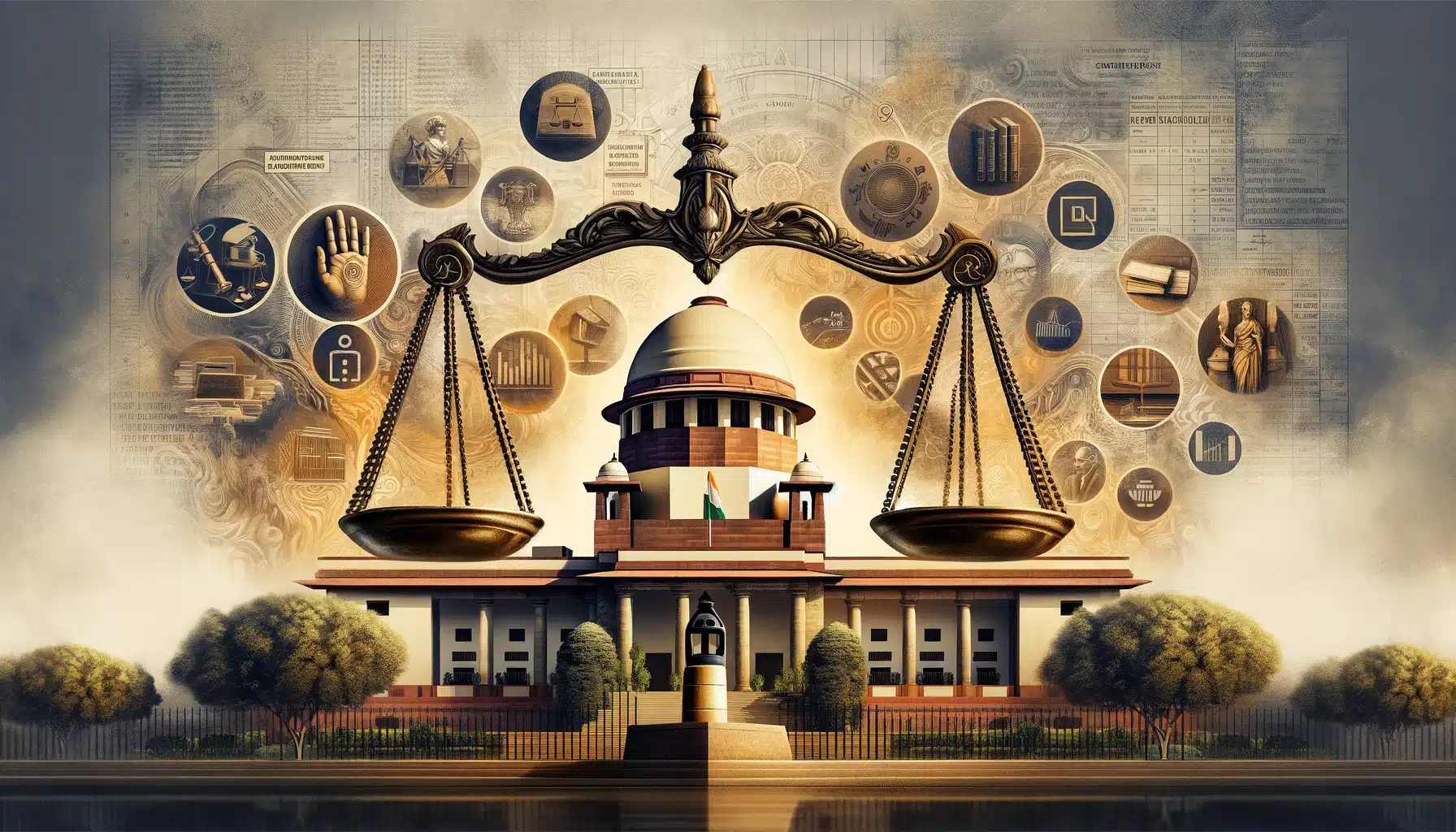The Supreme Court has reiterated that bail is the rule and jail is the exception under the Prevention of Money Laundering Act (PMLA). In a significant ruling, a bench comprising Justices BR Gavai and KV Viswanathan granted bail to an accused in a money laundering case, asserting that Section 45 of t

In a landmark decision that is likely to have profound implications on how bail is perceived under stringent laws, the Supreme Court of India has reiterated that bail is the rule and jail is the exception even in cases arising under the Prevention of Money Laundering Act (PMLA). This ruling underscores the importance of individual liberty, especially within the framework of Article 21 of the Constitution of India, which safeguards the right to life and personal freedom.
Delivered by a bench comprising Justices BR Gavai and KV Viswanathan, the judgment challenges the often rigid application of Section 45 of the PMLA, which sets out twin conditions for granting bail in money laundering cases. The bench clarified that while these conditions must be satisfied, they do not override the fundamental principle that the deprivation of liberty must be the exception rather than the rule.
Key Highlights of the Judgment
Bench Composition and Background
- The case, titled Prem Prakash v. Union of India through the Directorate of Enforcement (SLP(Crl) No. 5416/2024), involved the denial of bail to an accused in a money laundering case by the Jharkhand High Court.
- The petitioner, Prem Prakash, had been in prolonged incarceration, and the trial faced significant delays due to the large number of witnesses involved.
Clarification on Section 45 of the PMLA
- Justice KV Viswanathan, while delivering the judgment, stated, “We have held that even in PMLA, bail is the rule and jail is the exception.”
- The Court explained that Section 45 of the PMLA requires that certain conditions be met for bail to be granted, but this does not alter the constitutional principle that liberty is the rule and its deprivation is the exception.
- Justice Viswanathan further emphasized, “All that Section 45 PMLA mentions is that certain conditions are to be satisfied. The principle that bail is the rule and jail is the exception is only a paraphrasing of Article 21 of the Constitution of India which states that no person shall be deprived of his life or personal liberty except according to the procedure established by the law.”
Interpretation of Article 21
- The judgment elaborated on Article 21, noting that “Liberty of the individual is always the rule and deprivation is the exception. Deprivation can be made only by the procedure established by the law which has to be valid and reasonable. S.45 PMLA by imposing twin conditions does not rewrite this principle to mean that deprivation is the norm and liberty is the exception.”
- The bench asserted that compliance with the twin conditions under Section 45 is necessary, but these conditions must be understood within the broader constitutional context that prioritizes personal liberty.
Consideration of Incarceration and Trial Delays
- The Supreme Court took into account the long incarceration of the petitioner and the significant delays in the trial, which were primarily due to the large number of witnesses involved in the case.
- These factors were crucial in the Court’s decision to set aside the Jharkhand High Court’s denial of bail, emphasizing that undue delays and prolonged detention cannot justify the continued deprivation of an individual’s liberty.
Prosecution’s Burden Under Section 24 of PMLA
- The bench also addressed the burden of proof under Section 24 of the PMLA, highlighting that the prosecution must prima facie establish foundational facts for the reverse burden of proof to apply.
- The Court stressed that without these foundational facts, the prosecution cannot merely rely on the presumption of guilt, thereby protecting the accused’s right to a fair trial.
Click to read: PREM PRAKASH VERSUS UNION OF INDIA THROUGH THE DIRECTORATE OF ENFORCEMENT





